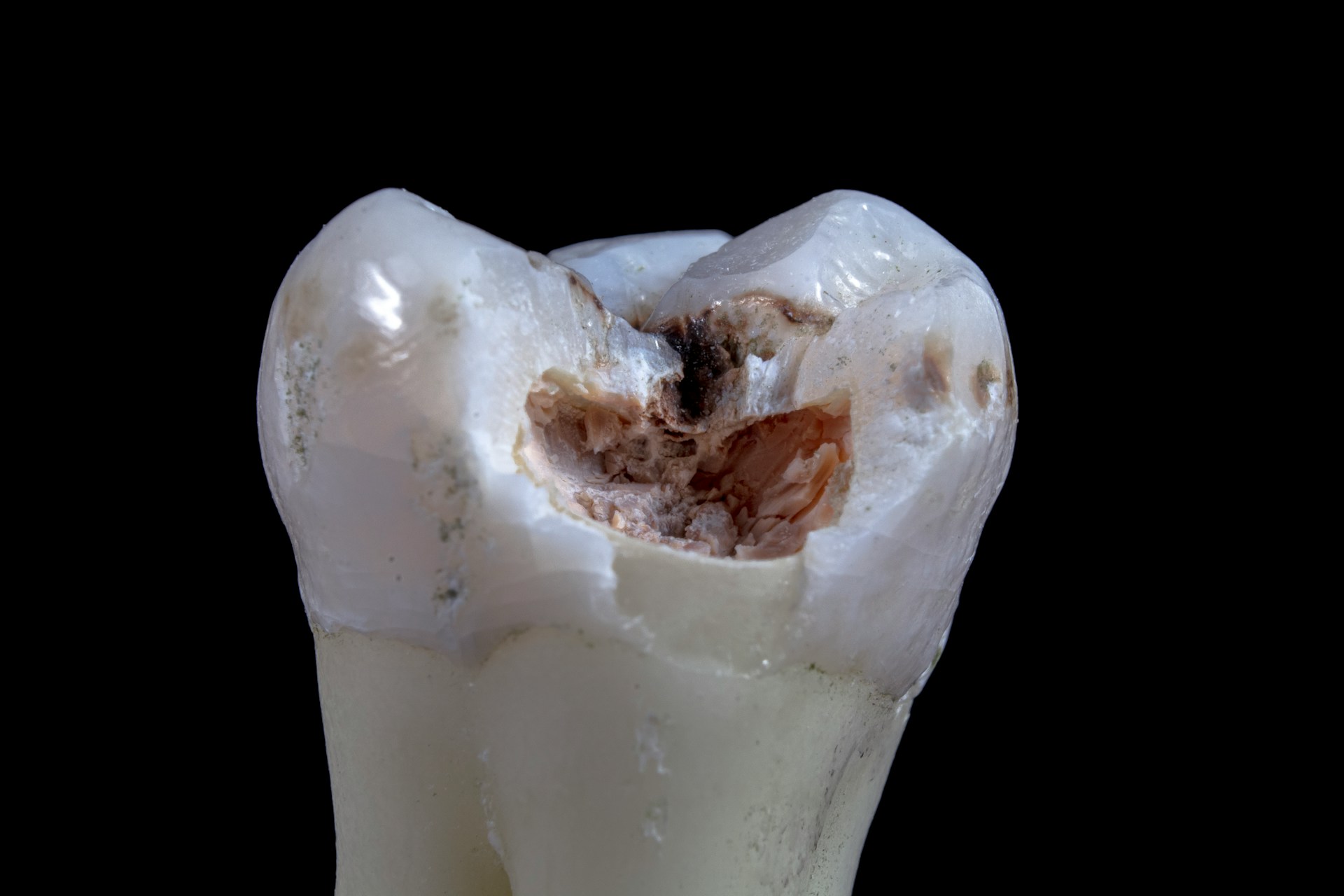
07 May What Are the Treatment Options for Cavities?
Tooth decay is one of the world’s most common dental health problems. Anyone with teeth can get cavities, no matter how old they are. You can even get cavities if you faithfully brush and floss every day. However, regular visits to the dentist will help prevent cavities and keep small ones from getting worse. Let’s take a closer look at the treatment options available.
What Causes Cavities?
Cavities begin as small holes in the tooth enamel. These holes grow bigger over time and can lead to pain, infections, and even tooth loss. If left untreated, the decay will spread until it destroys the whole tooth and even the bone and gum tissues that support the tooth.
Tooth decay can be caused by excessive sugary snacks and drinks, poor dental health, or even genetics. However, the main culprits when it comes to cavities are plaque and tartar. These troublesome colonies of bacteria live on your teeth and digest the sugars you eat. They turn those sugars into acids that gradually erode your tooth enamel and cause cavities to form.
The symptoms of cavities vary from person to person, but can include:
- Toothaches or tooth pain, especially when biting down
- Sensitivity to temperatures or sweet things
- Visible holes or divots in a tooth
- Brown or black stains
The Types of Treatments Available for Cavities
There are several ways to treat cavities, depending on the stage of decay. If the damage is minor, fluoride treatments could be able to rebuild the tooth enamel. But most of the time, a filling will be required. If the decay is too extensive to be repaired with a filling, you might need a crown, a root canal, or even an extraction and replacement.
Fluoride Treatments
Fluoride treatments can help rebuild and strengthen your enamel. If a cavity is detected in its beginning stages when it is only a small indentation, it can be treated with fluoride. Unfortunately, the amounts of fluoride in toothpaste and tap water are not enough to stop an already-forming cavity. That’s why dentists use a special, high-concentration fluoride treatment to protect teeth that are vulnerable to decay.
Fillings
The most common treatment option for a cavity is a filling. They can be made from various materials like composite resin, porcelain, or a combination of several materials to fill the hole and restore a damaged tooth. After removing the decay and cleaning the area, the cavity is filled in to prevent decay from spreading and protect the sensitive pulp inside the tooth.
Crowns
If the tooth is too weak to support a filling, or if the decayed area is too large, a crown is the best treatment option. Made from the same type of materials as fillings, crowns are a sort of “cap” that looks just like a natural tooth. They’re cemented over the root of a damaged tooth to protect it from further decay.
Root Canals
Once the decay reaches the nerves and blood vessels in the root of a tooth, the only way to save it is with a root canal. During the procedure, the damaged portions of the tooth are removed, usually through a small hole drilled in the top. This leaves the root of the tooth and any other healthy portions intact. After the pulp has been removed, the root canal is filled and the tooth is covered with a protective crown.
Tooth Extractions
Teeth that are severely decayed have to be removed before the infection spreads to other teeth or the jaw and gums structures. If the decay is too extensive for a tooth to be saved with a crown, it may need to be extracted. The missing tooth can then be replaced with a bridge or dental implant.
The Best Way to Treat Cavities Is to Prevent Them
Once the decay starts, it is impossible to stop a cavity from growing without your dentist’s intervention. Not all cavities cause pain, which is why it is important to see a dentist regularly, no matter how your mouth feels. With a steady oral health routine and twice-yearly checkups, you should be able to prevent cavities.
- Set up a good daily oral care routine, and stick to it.
- Visit the dentist twice a year for cleanings and exams.
- Avoid sugary foods and drinks as much as possible.
Sometimes, even the best oral hygiene habits are not enough to prevent cavities. It all depends on your genetics. So don’t skip your dental exams! If you’re due for a visit, make an appointment at Hicks Dental Group. Our team of highly trained dentists, hygienists, and support staff are here to help you keep your smile bright. Contact us today to schedule a cleaning and exam.
Images used under creative commons licence – commercial use (5/6/24). Photo by Ozkan Guner on Unsplash.

